Amidst the vast majestic limestone mountains of Sa Phin commune, Tuyen Quang province (formerly Ha Giang province), there is a small village named Lung Hoa B. Here, a young Mong man named Sung Mi Phin (born in 1994) wrote an inspiring story of starting a business.
Phin's community tourism model combined with homestay not only contributes to changing the face of the countryside, but also promotes the cultural identity of the Mong ethnic group and creates livelihoods for local people.
Struggling to retain tourists
Born into a family with a revolutionary tradition, his father was a teacher, Phin and his sister were cared for and guided in their studies. "Going to school will give you the opportunity to improve your quality of life," his father's teachings were deeply imprinted in Phin's mind.
He studied hard, passed the entrance exam to Ha Giang province boarding school, then studied primary education at Hai Duong Pedagogical College. He wanted to become a teacher, following his father's path, bringing knowledge back to his village.
However, when he returned to his hometown after graduating, Mr. Phin saw many foreign tourist groups visiting and passing through his village. This made him wonder: "Why don't I do something to keep tourists, but let them come and visit and then leave?"
Especially the time he and his mother sold goods at the Moon Rock beach, there were a lot of customers eating grilled food but they couldn't communicate because of the language barrier, except for exchanging prices by raising their fingers or using cash.
Since then, the idea of introducing his homeland's culture and beauty to foreign tourists and contributing to the economic development of his homeland has been ignited in the mind of the young Mong man Sung Mi Phin.
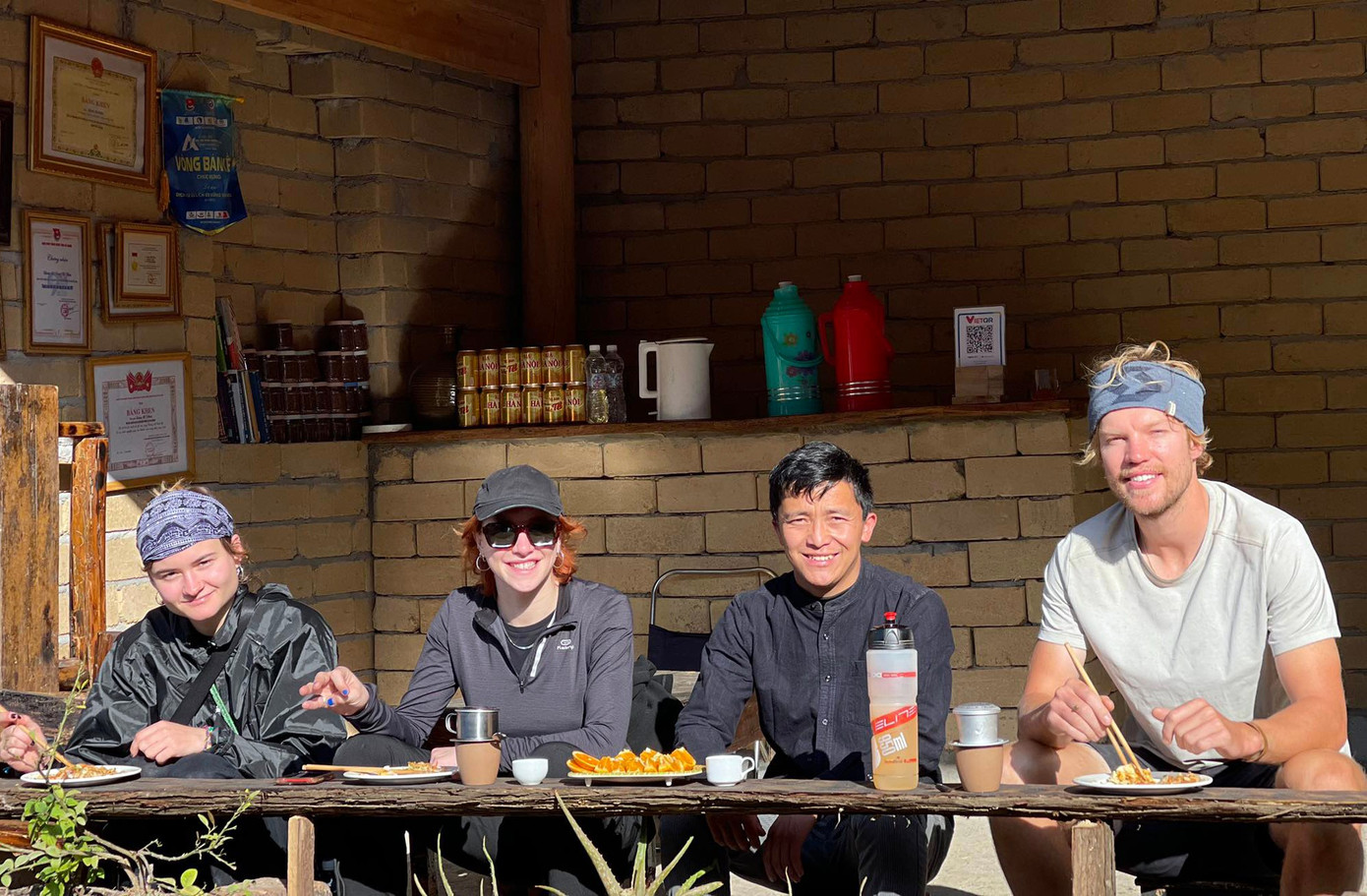
Start a business from the kitchen
Mr. Sung Mi Phin decided to give up his stable job to embark on the journey of starting a community tourism business. With only 500 thousand VND and opposition from his parents, he packed his bags and went to Sa Pa - where many Mong people work in tourism, to learn practical experience.
In Sa Pa, he applied for a part-time job at a pho restaurant and was fortunate to be accepted to study at Sapa O'Chau - a social enterprise that teaches free English and community tourism skills. A year of studying and experiencing tirelessly, from serving food, cleaning rooms to carrying luggage up the mountain for guests, equipped Phin with valuable knowledge and skills. He also participated in community tours, witnessing firsthand how the Mong people in Sa Pa do tourism.
“Having more knowledge and experience in Sa Pa, I am more eager to return to my hometown to work,” said Mr. Phin.
Returning to his hometown, his idea of a "homestay" did not receive support from his parents. He persistently persuaded them, then asked for the family's old kitchen to renovate and convert into a small room with 4 beds to welcome guests.
Initially the service was not good, but the family's closeness and sincerity won over tourists. They loved experiencing the real life of the local people, from cutting grass with Mr. Phin to feed the cows and pigs every morning, to gathering around the family dinner table, listening to his parents sing Mong folk songs.
"When we eat, we invite our parents to join in and sing folk songs, and our guests really like it," Phin said. Tourists not only introduce each other but also come back many times.
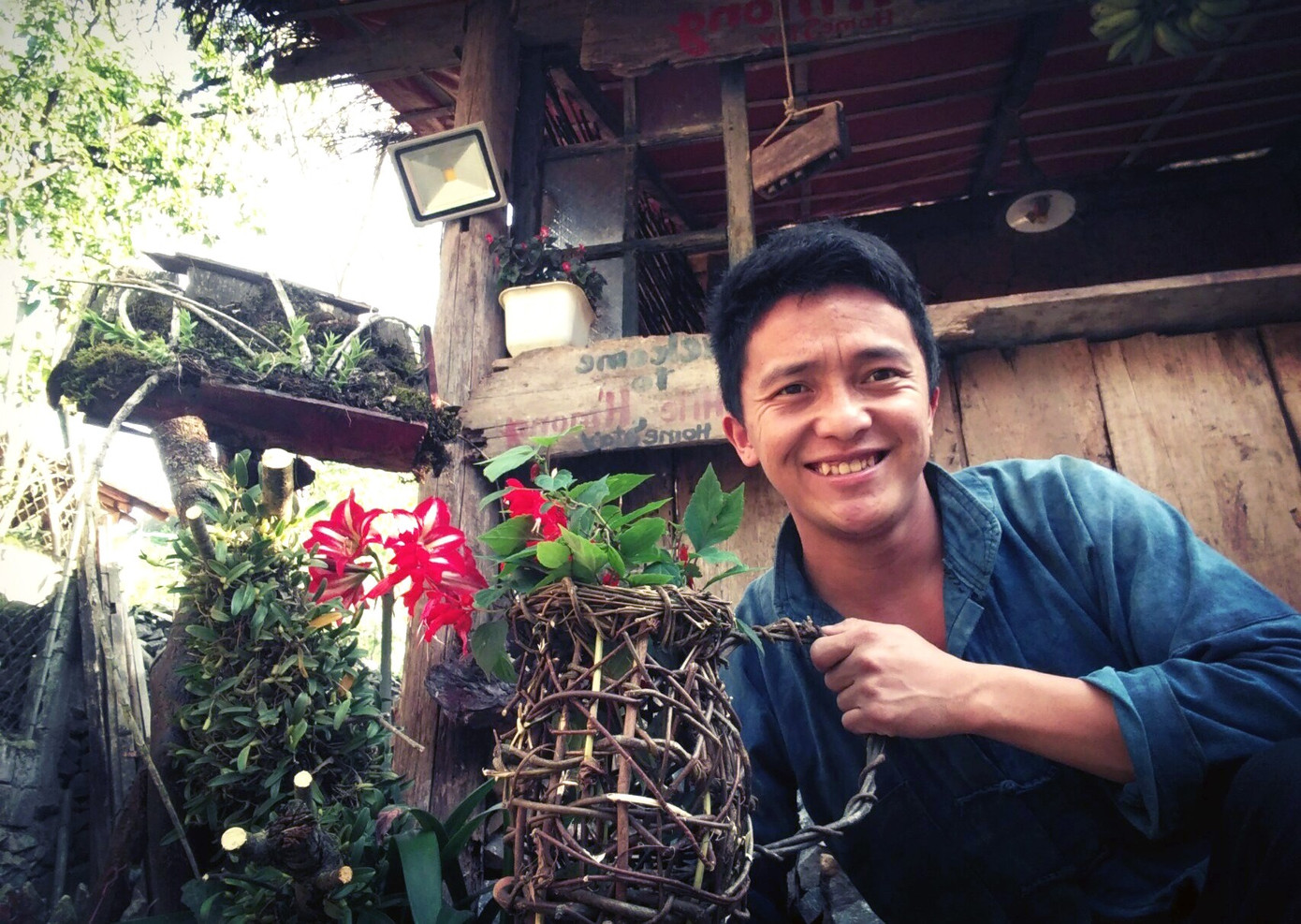
To make it easier for tourists to remember and for the model to reach further, he decided to name his homestay. He chose the name "White Hmong Homestay" (Homestay of the White Mong people), from the fact that the majority of people in the area are White Mong.
Mr. Phin said that this model focuses on authentic cultural experiences, not on quantity but on quality, welcoming about 15 guests to ensure privacy and connection.
Spreading community values
Since starting his business, the young Mong man Sung Mi Phin has always told himself that for tourism to develop sustainably, he cannot do it alone, there must be a community.
Along with developing his homestay model, he built the project “Chai To” (in Mong language means Welcome) to connect and develop community tourism in the village. He shared that “Chai to” written in Mong language is difficult to read, so it is transcribed and written clearly in Mandarin so that people can read and remember it more easily.
The project encourages households in the village to participate, creating a diverse range of experiences for tourists. "Chai To" is supporting 3-4 families, each offering a unique experience, from wine making, linen weaving to cultural exchange through singing... Revenue from "Chai To" not only brings economic benefits, but is also reinvested in education, skills training, and supporting the community to develop sustainable and systematic tourism.
In particular, the “Big Bottle” project also helps children in the village approach tourists, teach English and broaden their worldview; provide free training in tourism skills and tour guiding for local youth.
“Culture is not a general, invisible concept, but includes daily life, labor, singing, dancing... Therefore, we have to let guests experience and understand the traditional culture of the Mong people in Lung Hoa B,” said Sung Mi Phin.
Changing the face of the homeland
One of the things that Mr. Sung Mi Phin is most passionate about is the journey of starting a business with a community tourism model that contributes to changing the face of his hometown village.
He said that before the homestay, the lives of many households in Lung Hoa B were still chaotic, and their houses and grounds were not really tidy. Since he started his business, the lives of his family and those participating in the project have changed significantly. The living space has become cleaner and tidier. Tourists not only admire the beautiful scenery but are also more willing to experience and integrate into the traditional lifestyle and culture of the local people.
Mr. Phin is trying to call for social resources to help people renovate their houses and change the landscape, not only to welcome guests but also to improve their quality of life. He hopes to change people's production and business thinking, combining agricultural economic development with green, sustainable tourism.
For Sung Mi Phin, tourism is not only an economic sector but also a means to preserve and promote the cultural identity of the Mong people, create opportunities for the younger generation and bring a better life to the people there.
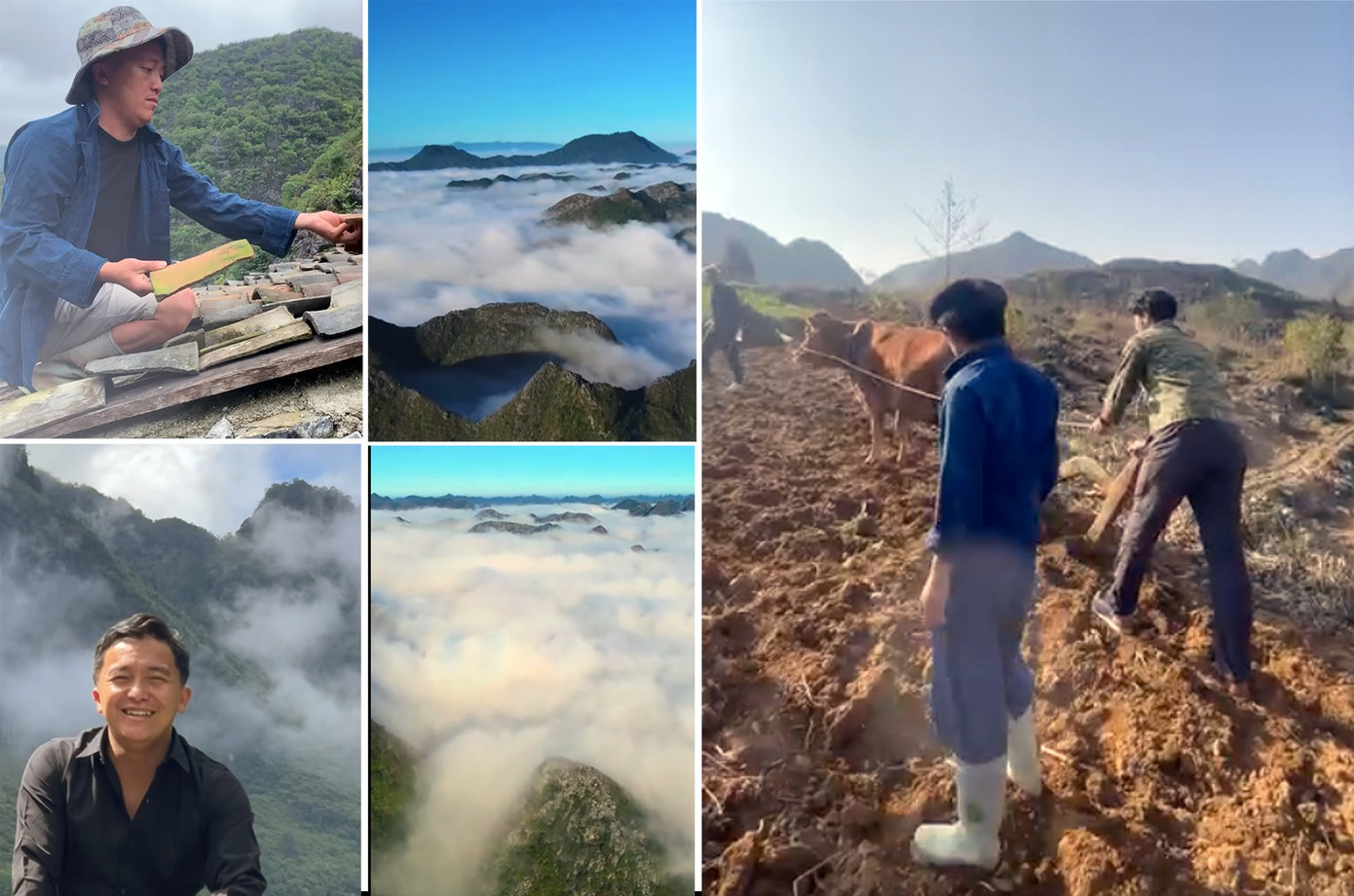
With the success of the startup model and the "Big Bottle" project, Mr. Sung Mi Phin was recognized by the Central Youth Union as an Advanced Youth Following Uncle Ho's Teachings nationwide in 2023, and won second prize in the 6th Creative Startup Project Competition for Rural Youth.
Recently, Mr. Sung Mi Phin was one of 7 typical delegates of Tuyen Quang province attending the meeting with leaders of the Party, State and Vietnam Fatherland Front on the occasion of the 80th anniversary of the successful August Revolution and National Day September 2 in Hanoi.

Helping people escape poverty with the Thai frog farming model

Vinh oranges are full of fruit on Truong Son mountain range, a way out of poverty for people in the highlands of Da Nang.

Applying smart agricultural model, Hre ethnic people escape poverty together
Source: https://tienphong.vn/chang-thanh-nien-mong-thap-sang-du-lich-cong-dong-tren-cao-nguyen-da-post1777035.tpo






![[Photo] Da Nang: Hundreds of people join hands to clean up a vital tourist route after storm No. 13](https://vphoto.vietnam.vn/thumb/1200x675/vietnam/resource/IMAGE/2025/11/07/1762491638903_image-3-1353-jpg.webp)

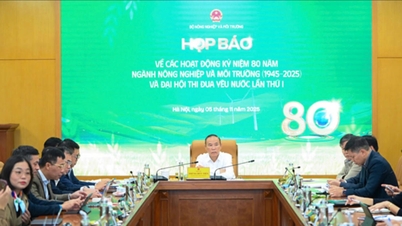

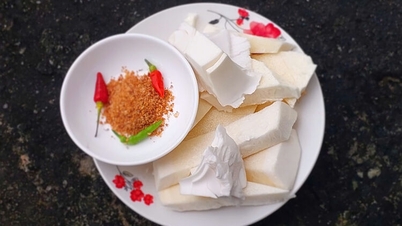



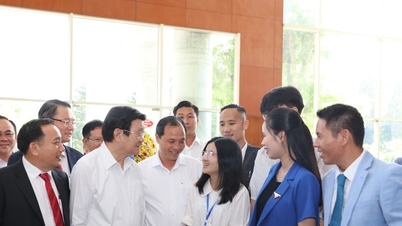

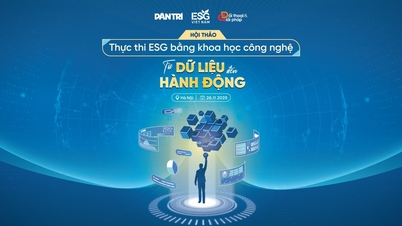



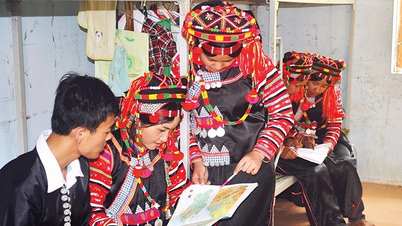

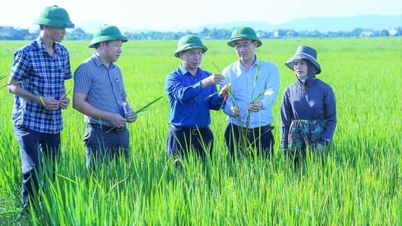





































































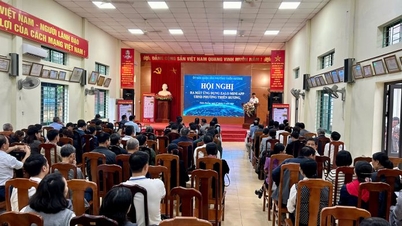

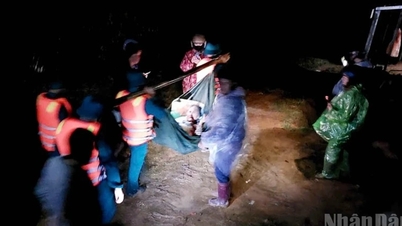



















Comment (0)